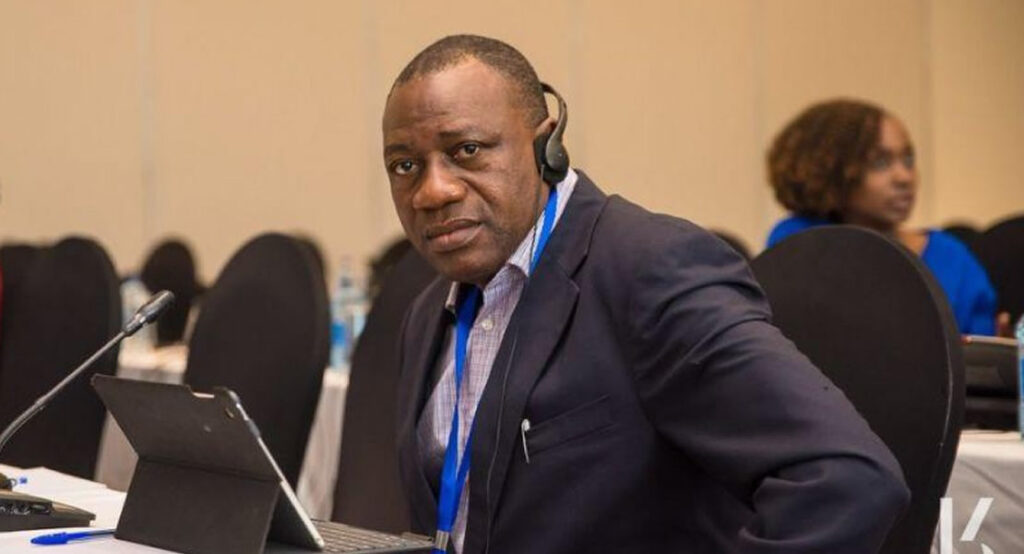Rashid Pelpuo Warns Employers of Legal Action for Underpaying Workers

Rashid Pelpuo, the Minister-designate for Labour, Jobs, and Employment, has pledged to strengthen the enforcement of minimum wage laws in Ghana, asserting that employers who fail to comply with these regulations will face legal action. During his vetting before the Appointments Committee on January 30, Pelpuo made it clear that his administration will take a firm stance against underpayment of workers, emphasizing that no employer should pay less than the legally established minimum wage.
“If the government agrees on a minimum wage, the law applies universally across all sectors and employers. Anyone who fails to pay the mandated minimum wage will be held accountable. If an employer is found to be violating the law, they will be questioned and, if found guilty, prosecuted,” he explained. Pelpuo’s comments are in line with his broader commitment to ensuring fair treatment for all workers in the country, highlighting the importance of protecting workers’ rights against exploitation. His firm position has been welcomed by various stakeholders, particularly those advocating for improved workers’ conditions, as the issue of fair pay remains central to ongoing national discussions.
In addition to addressing minimum wage compliance, Pelpuo also touched upon the issue of frequent labor strikes, which have been a significant challenge, particularly in the public sector. In 2024, 21 out of 27 industrial actions were recorded in the public sector, with the tertiary education sector accounting for 40% of these disputes. Pelpuo expressed his intent to engage more constructively with organized labor to understand and resolve the underlying causes of these conflicts.
“There are already established procedures that we follow to resolve labor issues, and I am committed to working closely with labor experts and union leaders to manage these challenges effectively,” Pelpuo noted. His approach involves a more open and transparent dialogue with workers, ensuring their grievances are heard and resolved in line with the legal framework. He stressed the importance of building trust between workers, employers, and the government, and emphasized that tackling these challenges requires collective responsibility and cooperation from all stakeholders.
Furthermore, Pelpuo highlighted the need for a balance between wages and productivity. He pointed out that workers should be compensated fairly for the value they provide to their employers, and there should be a direct link between the work performed and the wages received. “Wages should be directly correlated with productivity. When negotiating salaries, it’s essential to take into account the contributions of workers and the value they bring to the organization,” he explained. Pelpuo’s comments reflect a broader vision to ensure that the labor market is both fair and sustainable, where wages are not only adequate but also aligned with the economic output of workers.
Pelpuo also expressed his support for the proposal to transform the Fair Wages and Salaries Commission into a “Bureau of Productivity and Fair Wages.” This transformation, he argued, would help align wages with productivity and ensure that compensation levels are better tied to the actual work being done. “In Ghana, we understand the need for a balance between what you produce and what you earn. This is a critical factor in ensuring the country’s labor market remains fair and productive,” he stated.
Pelpuo’s approach to labor reform is focused on creating an environment that supports both workers and employers. His goal is to foster a sustainable workforce that contributes to the nation’s growth while ensuring workers are justly compensated. His firm stance on enforcing minimum wage laws, tackling industrial actions, and promoting a fair link between wages and productivity is designed to create a more equitable and efficient labor market in Ghana.
Asthe Minister-designate prepares to take office, his proposed policies reflect a commitment to strengthening the labor sector by addressing both immediate concerns and long-term challenges. Pelpuo’s leadership aims to create a fair and balanced labor environment, ensuring that all workers in Ghana are treated with dignity and respect, while also supporting the country’s economic development. His emphasis on cooperation, fairness, and productivity is expected to guide his tenure, and stakeholders are eager to see the impact of his policies on the country’s labor force.







